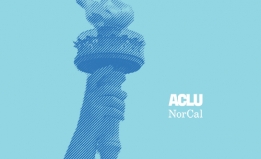
Blog
We can be pretty sure that each new day will bring two things: new threats to our civil liberties, and new stories of people standing up for their rights and winning. Behind every court ruling is a person. Behind every landmark law is a movement. Read the stories and hear the voices that ground our work.
Facebook Addresses Several Privacy Problems
We Don't Want Simpler Controls - We Simply Want Control
Google Announces Encrypted Search
Group Will Join Lawsuit If North Carolina Department Of Revenue Keeps Up Demand For Private Information
The Crisis in Fourth Amendment Jurisprudence
Digital Books: A New Chapter for Reader Privacy
ACLU of PA Representing Anonymous Twitter Critics
Run Privacy Upgrade- It's Time for Congress to Update ECPA
High School Essay Contest on Internet Privacy sponsored by ACLU-SCV
Statistical Evidence That We Need a Privacy Law Upgrade
Is Facebook Having Another Privacy Disconnect?
The very first sentence on Facebook's privacy guide page states: "You should have control over what you share."
That seems fairly simple, doesn't it?
But many of Facebook's recent actions, such as its much-criticized "privacy transition," have made it harder for users to retain control over their information. Is this week more of the same?
Earlier this week, following up on its , Facebook announced its plans to create more dynamic profiles using "Connections." What exactly counts as a connection wasn't clearly defined either time, but seems to include things like friends lists, likes and interests, events, groups, and activities. (Today's announcement of the Social Graph API includes News Feed, Wall, Notes, Photos, and Videos as "connections" too, but Facebook may be overusing the word to mean different things.)
More importantly, it also isn't clear whether users will have real control over how their connections are shared. Both Facebook's Monday announcement and its have suggested that users cannot prevent applications, pages, and other third parties from accessing these connections. (They may be able to "hide" them from other Facebook users, but not from the government, advertisers, or anyone else with the ability and incentive to create apps or pages.) However, today's new documents for developers point to the Extended Permissions page that requires that applications and pages to explicitly ask the user before accessing various "connections," including interests, events, groups, and location.
If Facebook believes that you "should have control over what you share," it should resolve this by giving users real control over whether their connections can be accessed by apps and pages. Doing so still won't resolve other issues, like the "app gap" that allows your friends' applications to view your personal information without your knowledge or consent, but it would be one step in the right direction.
Otherwise, the only way you can keep control of your information is to refuse to use Facebook to share or connect at all. And that's not what we mean by control.
So don't let Facebook take away control over your personal information! Tell Facebook that you want to have control over your friends, groups, events, and interests so that you – and not Facebook, the government, or anyone else – chooses how and when they are shared!
Demand control of your personal information – Demand Your dotRights!
Chris Conley is the Technology and Civil Liberties Fellow with the ACLU of Northern California.
Read More
